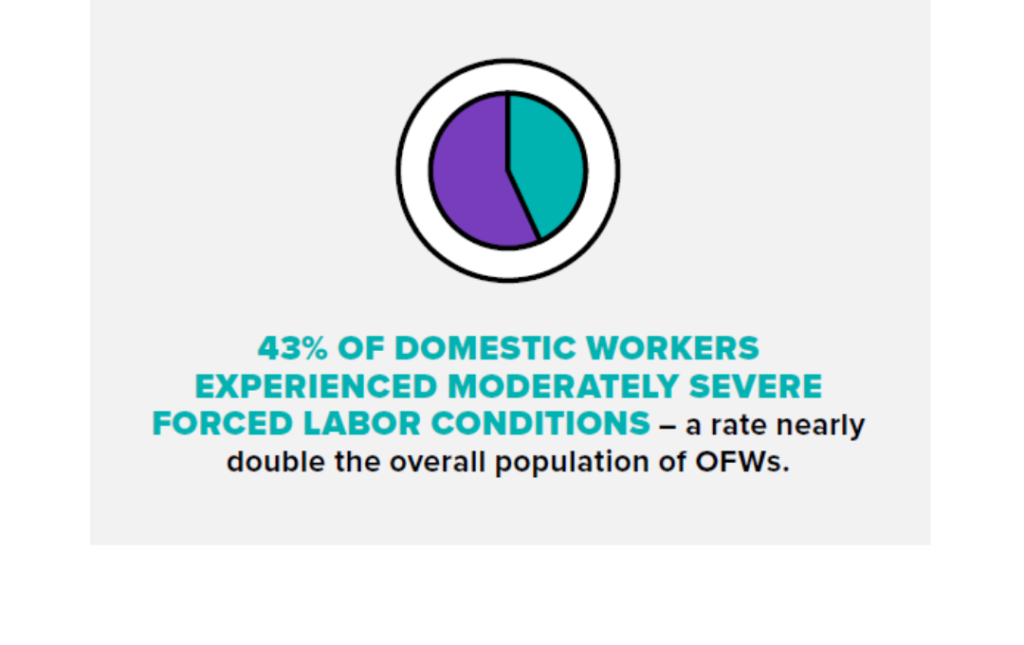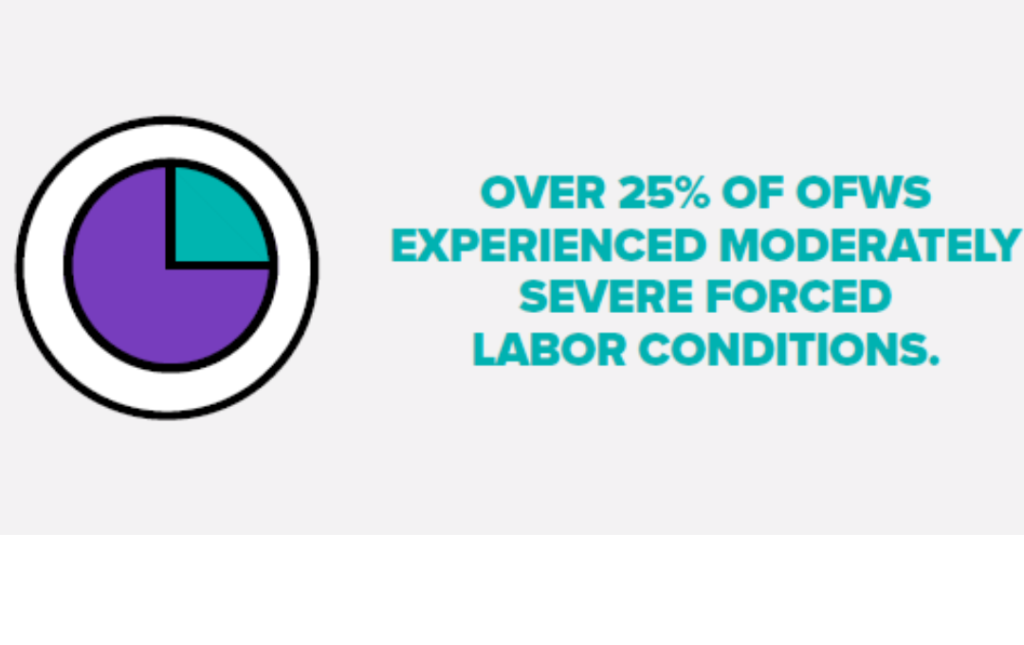Migrant workers are critical contributors to the global economy, and the Philippines is a leading country of origin for migrant labor. Each year, over 2 million Filipinos work overseas – nearly one million of whom are hired into so-called “elementary occupations”, including construction, transportation, and domestic work. These lower-skilled migrant workers, and female domestic workers in particular, are highly vulnerable to exploitation – often subject to unethical recruitment mechanisms, deceptive hiring practices, and forced labor conditions after arriving in the receiving country.
From 2018 to 2022, GFEMS supported research and programming, led by our implementing partners Two Six Technologies (TST), Blas F. Ople Policy Center (Ople Center), International Organization for Migration (IOM), and the Fair Employment Foundation (FEF), to better understand and address issues across the labor migration system.
Study findings indicate that Filipino migrant workers face considerable risks to their freedom, and economic and
personal safety.
Findings from this research and programming help to (1) understand and address vulnerabilities for Filipino domestic workers; (2) equip government and other stakeholders to investigate and tackle labor abuses; and (3) support a shift towards ethical recruitment practices in the sector.
For more findings and recommendations, download the briefing.
This research was funded by a grant from the US Department of State. The opinions, findings and conclusions stated herein are those of the authors and do not necessarily reflect those of the United States Department of State.

